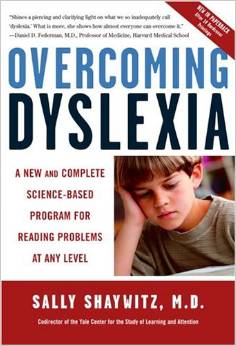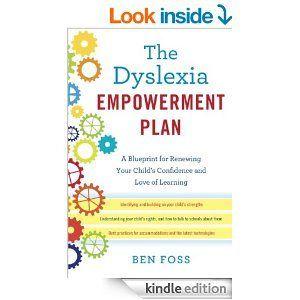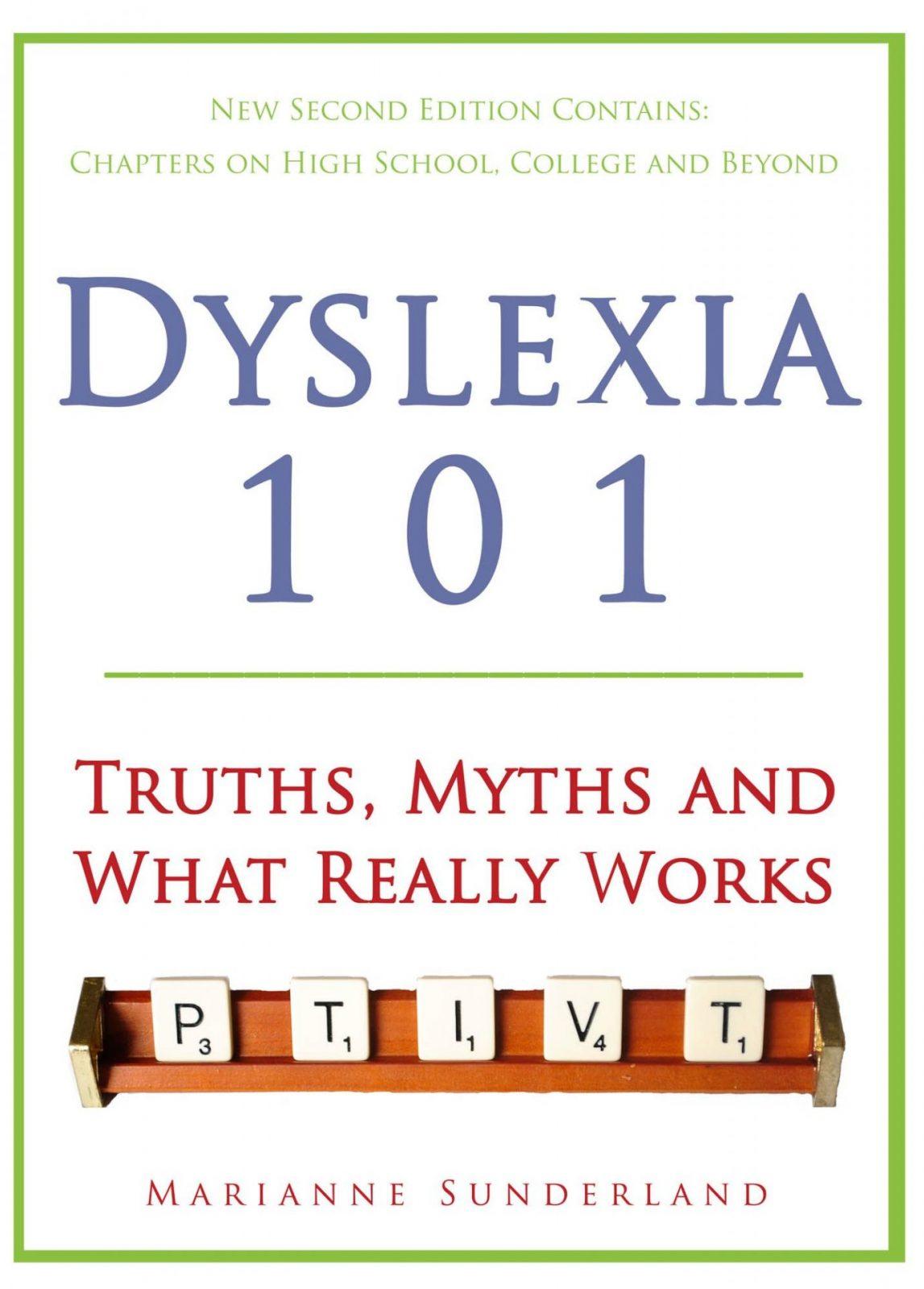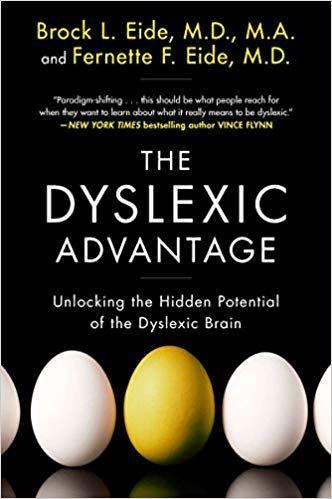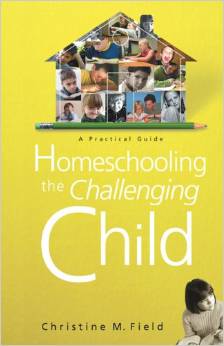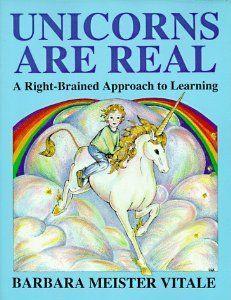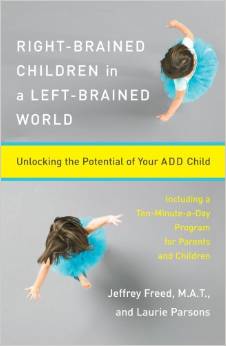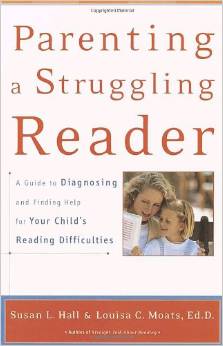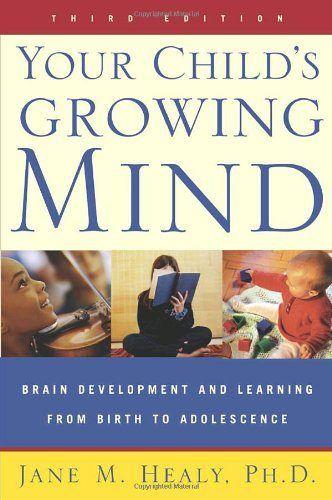For Parents
This list of resources for parents are books and web sites that I read over and over again. One of the main reasons for starting this site was to encourage and equip parents to successfully teach their kids at home. Teaching kids with dyslexia requires knowledge of how they learn and a fair amount of creativity. These books will give you all of that information.
Best Books on Dyslexia
Overcoming Dyslexia, by Sally Shaywitz
Dr. Sally Shaywitz, codirector of the Yale Center for the Study of Learning and Attention and a leader in the current research into how the brain works, offers the latest information about reading problems and proven, practical techniques that, along with hard work and the right help, can enable anyone to overcome them. This book is essential for understanding the physiological changes within the dyslexic brain. A fascinating and life-changing read for those new to the world of dyslexia.
The Dyslexia Empowerment Plan, by Ben Foss
After years of battling with a school system that did not understand his dyslexia and the shame that accompanied it, renowned activist and entrepreneur Ben Foss is not only open about his dyslexia, he is proud of it. In The Dyslexia Empowerment Plan he shares his personal triumphs and failures so that you can learn from his experiences, and provides a three-step approach for success:
• Identify your child’s profile: By mapping your child’s strengths and weaknesses and assisting her to better understand who she is, you can help your child move away from shame and feelings of inadequacy and move toward creating a powerful program for learning.
• Help your child help himself: Coach your child to become his own best advocate by developing resiliency, confidence, and self-awareness, and focusing on achievable goals in areas that matter most to him.
• Create community: Dyslexic children are not broken, but too often the system designed to educate them is. Dare to change your school so that your child has the resources to thrive. Understanding your rights and finding allies will make you and your child feel connected and no longer alone.
Packed with practical ideas and strategies dyslexic children need for excelling in school and in life.
Dyslexia 101, by Marianne Sunderland
My book! Written to be a Quick Start Guide for parents to navigate the world of dyslexia and education. The only book available with specific information on homeschooling with dyslexia.
The Dyslexic Advantage, by Brock Eide and Fernette Eide
Did you know that many successful architects, lawyers, engineers—even bestselling novelists—had difficulties learning to read and write as children? In this groundbreaking book, Brock and Fernette Eide explain how 20% of people—individuals with dyslexia—share a unique learning style that can create advantages in a classroom, at a job, or at home. Blending personal stories with hard science, The Dyslexic Advantage provides invaluable advice on how parents, educators, and individuals with dyslexia can recognize and use the strengths of the dyslexic learning style. Invaluable for understanding the inherent strengths of your child’s dyslexic mind.
Homeschooling the Challenging Child, by Christine Field
Written by a former lawyer turned homeschool mother, this book is not exclusively about homeschooling a child with dyslexia rather more about the issues surrounding homeschooling kids with all kinds of challenges. Chapters address how to deal with issues stemming from various learning disabilities, attention disorders, personality clashes, learning styles, discipline problems, managing stress and discouragement, how to plan a program, and the importance of keeping in mind the tenets of God’s love and forgiveness. Hands-on tips for managing a successful home education program, as well as how to find professional help from support groups.
Unicorns Are Real: A Right-Brained Approach to Learning, by Barbara Meister Vitale
If you are hopelessly left-brained (linear and logical) like me, you will love this book. Written in an easy to understand style and full of real life practical strategies for teaching the predominantly right-brained learner. The book begins with an easily understood, yet surprisingly in-depth description of brain structure and function as it pertains to learning. The book also contains simple, do-at-home procedures for testing your child for brain dominance.
Right Brained Children in a Left Brained World, by Jeffery Freed and Laurie Parsons
I always love to learn from others who are hands on in the field. This book is just that. Written by a former teacher and educational therapist, it is full of real life examples of how right-brained thinkers learn best. Full of ideas for teaching strategies too. Now if they would just write Left Brained Parents in a Right Brained Home!
Parenting the Struggling Reader, by Susan Hall and Dr. Louis Moats
Wri
A very comprehensive, practical guide for recognizing, diagnosing and overcoming any childhood reading difficulty. Written by a mother of a struggling reader (who is also on the board of directors of the International Dyslexia Association) and an educational researcher, this book contains both the clinical information a parent needs but also the practical, everyday solutions and tips needed to successfully help your struggling reader.
Contains an extensive explanation of our role as advocate for our children. Sections are as follows:
- Identify
- Testing
- Accurate diagnosis
- Determining what instructional approach will be most effective for your child
Your Child’s Growing Mind, by Dr. Jane Healy
Considered the classic guide to understanding children’s mental development. She explains the building blocks of reading, writing, spelling, and mathematics and shows how to help kids of all ages develop motivation, attention, critical thinking, and problem-solving skills. She also looks at learning issues, ADHD, and the influences of electronic media – all through the lens of the science of childhood development.
Best Websites on Dyslexia
International Dyslexia Association: The International Dyslexia Association (IDA) is a national non-profit dedicated to helping individuals with dyslexia, their families, and the communities that support them. Visit their site to connect with a local branch near you, find IDA-member providers in your area, and learn more about dyslexia.
LD Online: One of the best informational sites on learning disabilities and ADHD. The site features hundreds of helpful articles, multimedia, a comprehensive resource guide, discussion forums, and a referral directory of professionals, schools and products. Also offers information and resources for the transition from high school to college and from college to the workplace for adults with learning disabilities.
Dyslexic Advantage: From the writers of the book of the same name. This site is full of information, current research and forums to start and contribute to discussions of issues important to you.
The Yale Center for Dyslexia & Creativity: Concise site full of information for parents, educators and policy-makers.
DyslexiaHelp at the University of Michigan: Dyslexia: Help is designed to help you understand and learn about dyslexia and language disability. Visit their site for a wealth of information for individuals with dyslexia, parents and professionals. If you’ve ever wondered about celebrities who have dyslexia, be sure to check out their “Dyslexia Success Stories” section.
Bright Solutions for Dyslexia: Susan Barton is the developer of the Barton Reading & Spelling System. This is a science-based program that you can easily do from home. Be sure to have your child tested before beginning any treatment program to know for sure what your child’s specific areas of weakness are. Her site is full of information on everything from defining dyslexia to finding a tester or tutor in your area.
Parent Center Network-Parent Center Listing: If you are the parent of a K-12 student with dyslexia, you’ll want to take a look at this site and find your nearest Parent Training and Information Center (PTI). PTIs are funded by the federal government and offer parents assistance in navigating special education and their child’s rights under the Individuals with Disabilities Education Act (IDEA).
Get Ready to Read: A wealth of information and tools to educate parents on how younger kids (ages 3-5) learn, the stages of reading readiness and tips, webinars and links to more excellent resources than I can name here. Includes a free online screening tool that you can do with your emergent reader right at home to asses the skills of your child. The screening results let a parent know whether or not to take specific actions such as introducing new skills, offer additional instruction, practice or support or if further assessment is needed.

